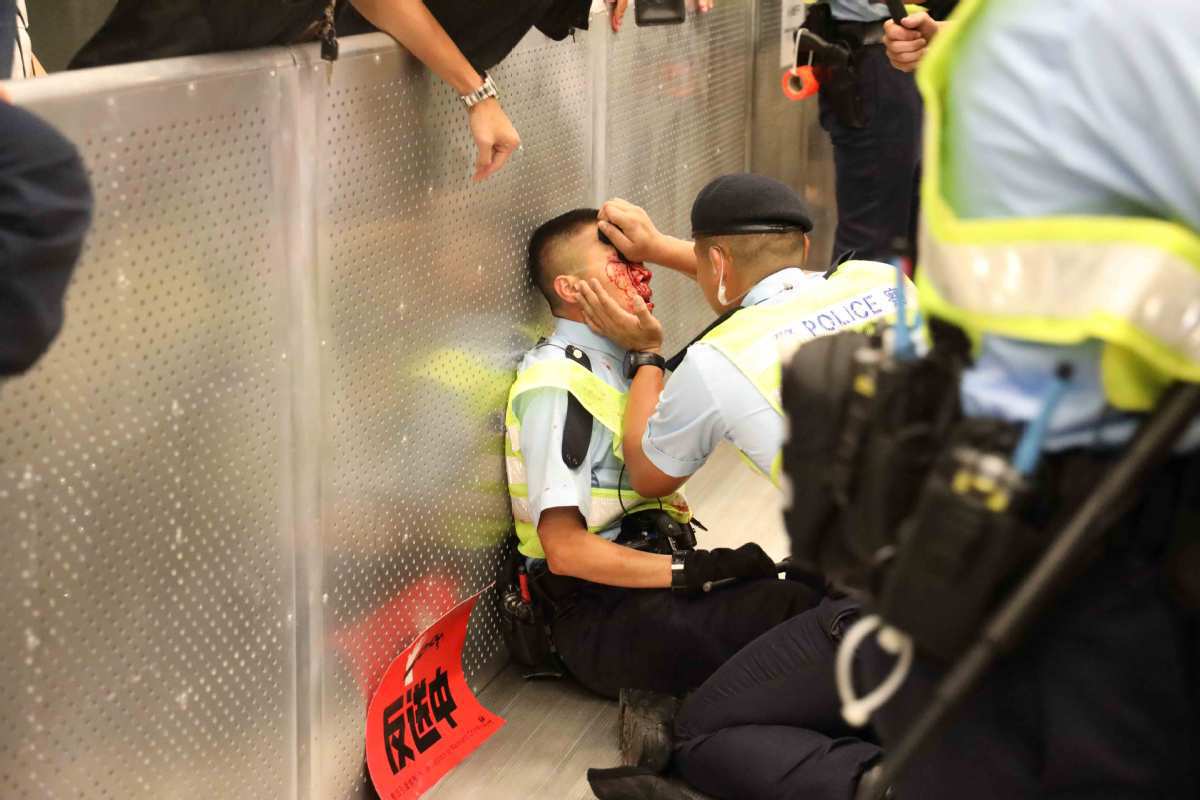Lawlessness undermining rule of law in Hong Kong: China Daily editorial
chinadaily.com.cn | Updated: 2019-06-12 20:09

The government of the Hong Kong Special Administrative Region has explained many times the proposed amendments to Hong Kong's fugitive law are meant to better protect Hong Kong society by plugging the loopholes in the existing laws in order to enhance the rule of law.
Rather than pushing through a bill against the wishes of Hong Kong society as some have tried to portray, the government has made changes to the proposed bill more than once in response to concerns expressed in the community. As a result, most of the members of Legislative Council of the special administrative region, who are accountable to their voters, now support the amendments.
Nor is it a hasty or unnecessary move. Indeed the need for an extradition agreement with the mainland was acknowledged by government officials and legal experts ahead of Hong Kong's return to China in 1997.
Yet there are still some who have jumped on the issue, as a means to create a disturbance and tarnish the image of the government.
After clashes between rioters and police early Monday morning, violent protests on Wednesday caused LegCo to postpone the scheduled full council meeting for resumption of the legislative process for the amendment bill, prompting calls for calm and rational discussions.
Although the legislation is in accordance with the Basic Law, satisfies all the requirements of relevant international conventions and suits Hong Kong's status as an international city with a mature legal system, the opposition camp and its foreign masters seem willing to oppose it for their own purposes at the expense of the city's rule of law, public safety and justice.
Meant only to strengthen Hong Kong's judicial independence, the amendments will not contravene the principle of "one country, two systems".
It is a common practice among independent jurisdictions to provide mutual legal assistance in criminal matters, including but not limited to the surrender of criminal fugitives. If one jurisdiction has enjoyed such assistance from another but then refuses to reciprocate in kind, the latter has reason to stop offering such assistance.
While inciting and encouraging unlawful behavior in the ongoing anti-fugitive law amendment bill campaign, the opposition camp has never mentioned the fact that, despite the lack of an official agreement on mutual legal assistance, judicial departments on the mainland have handed over many criminal suspects wanted in Hong Kong on serious charges over the years. Handing over of these fugitives has certainly helped Hong Kong curb cross-boundary crimes and maintain its reputation as one of the safest cities in the world.
It is lawlessness that will hurt Hong Kong, not the proposed amendments to its fugitive law.
























